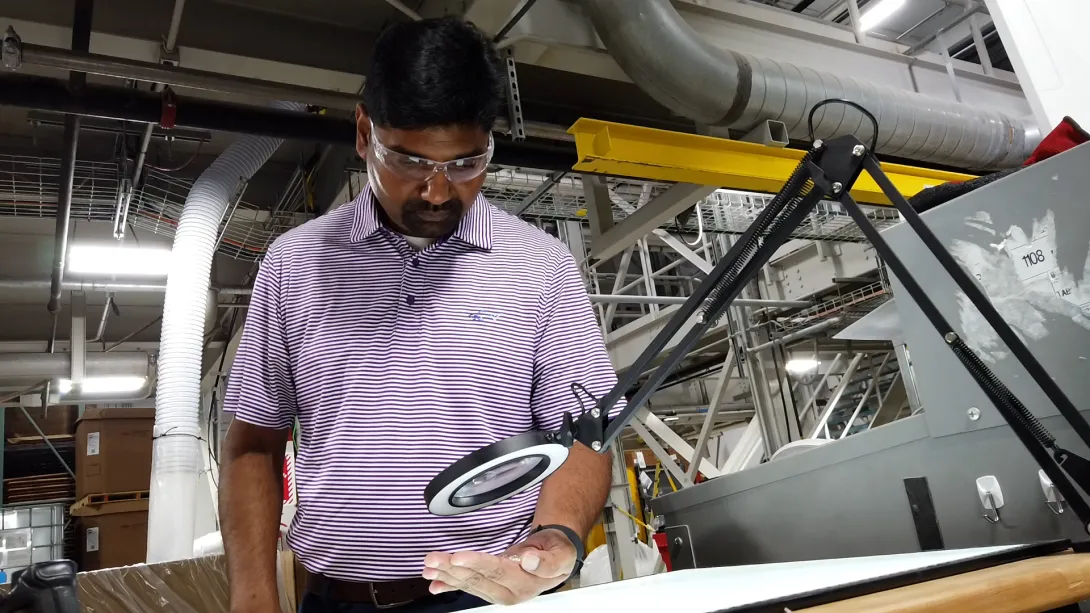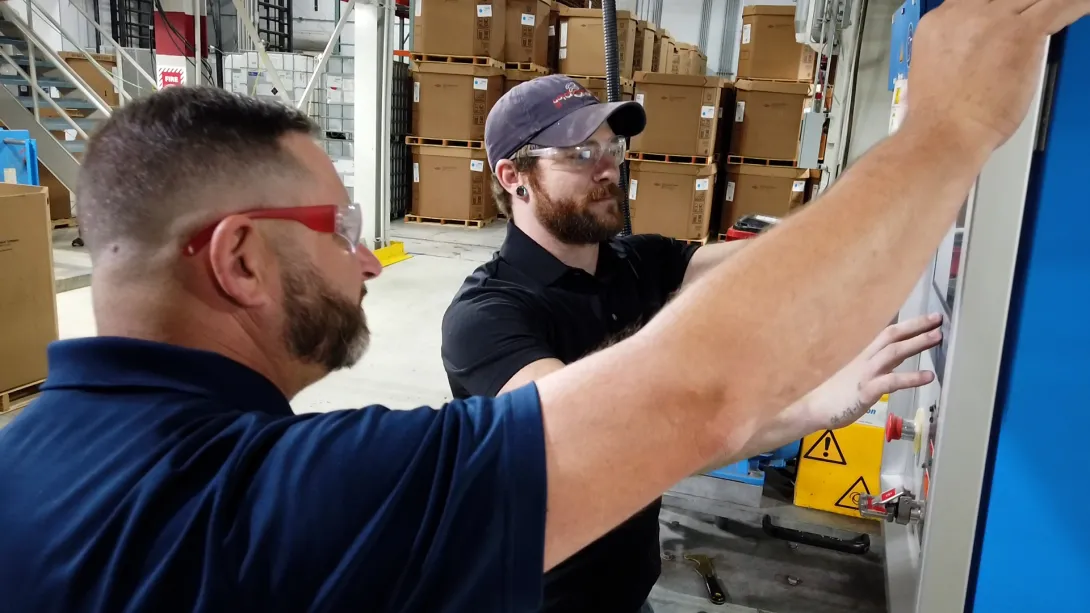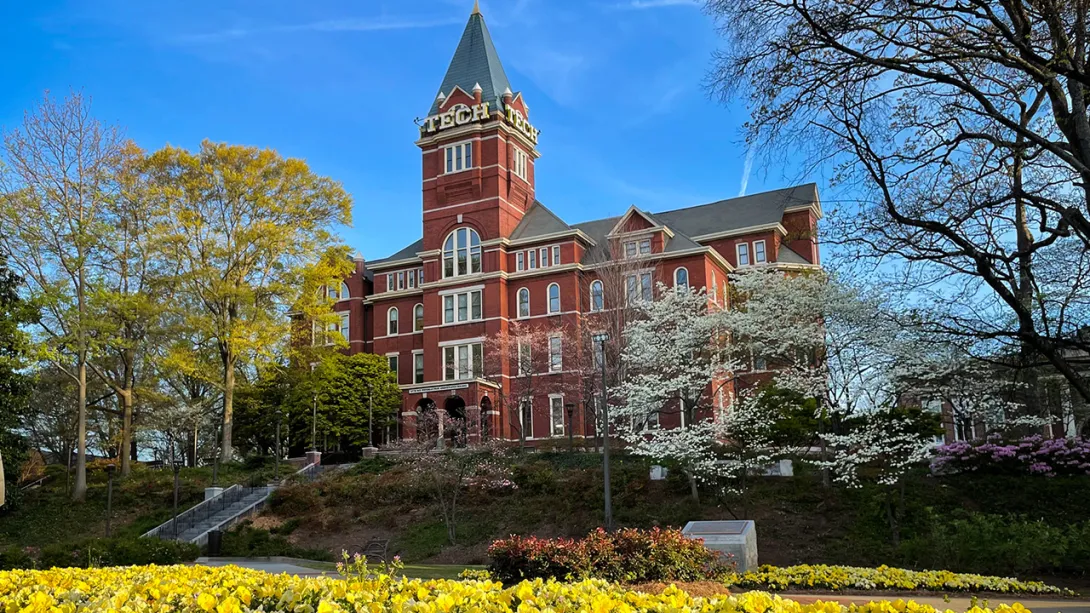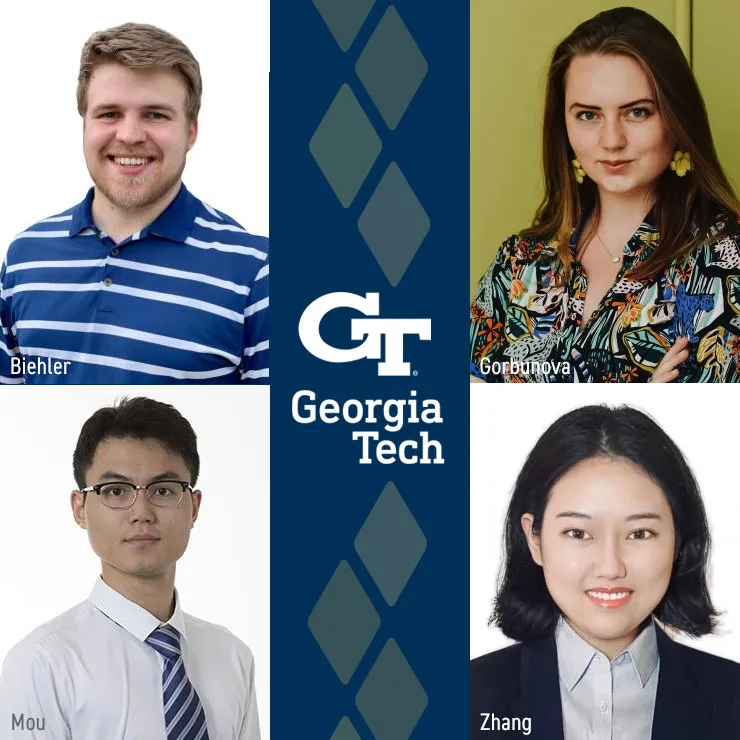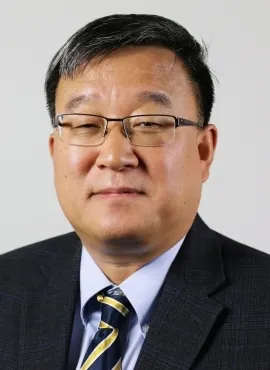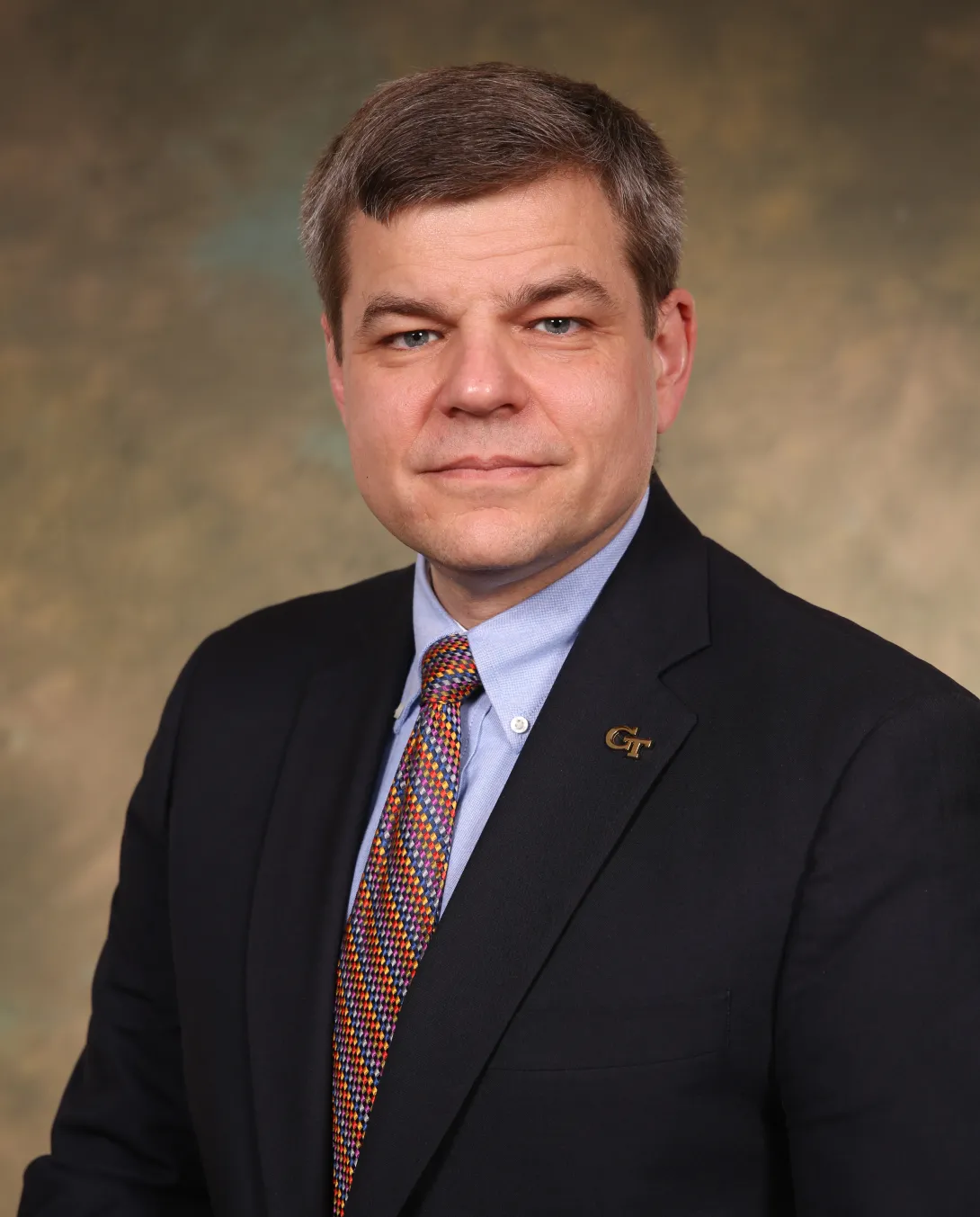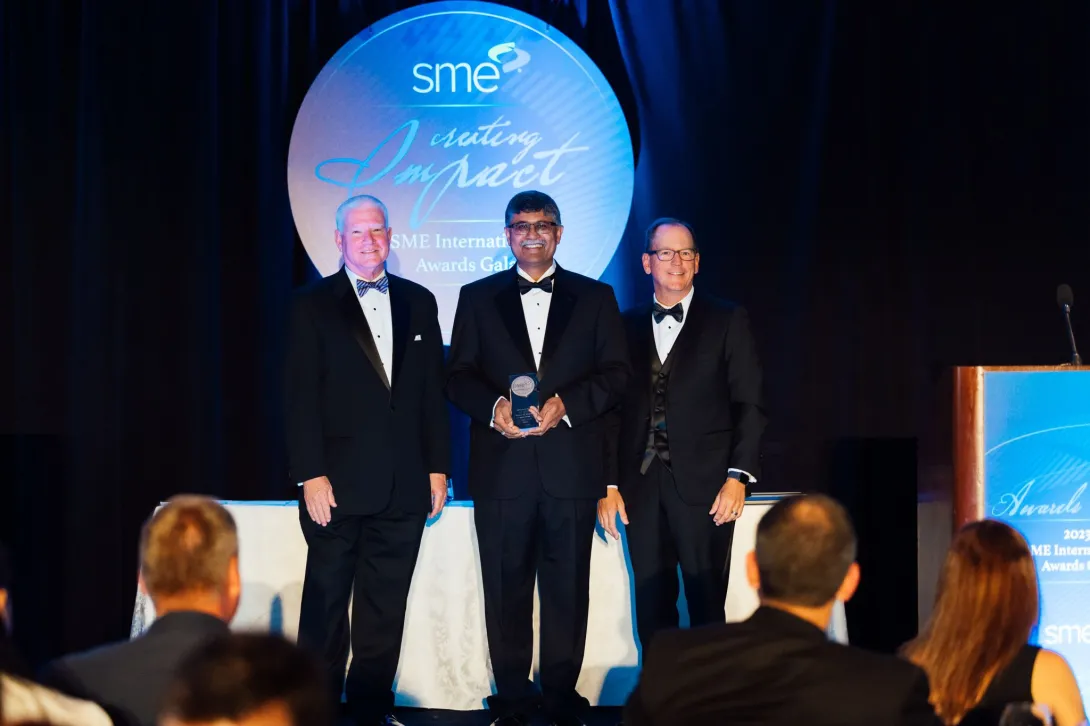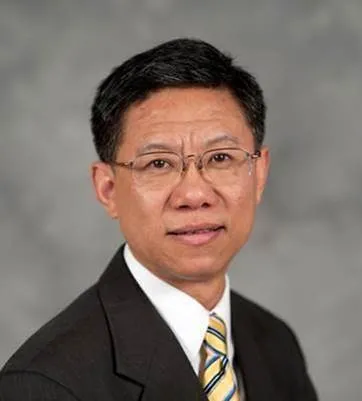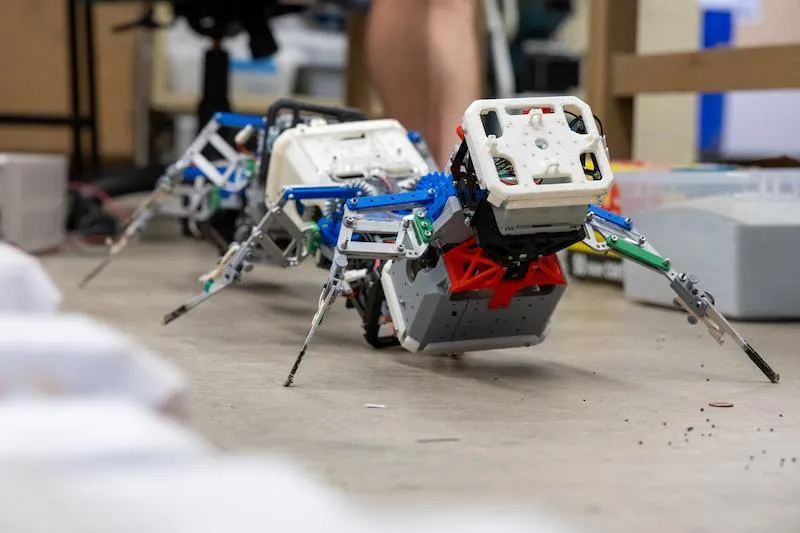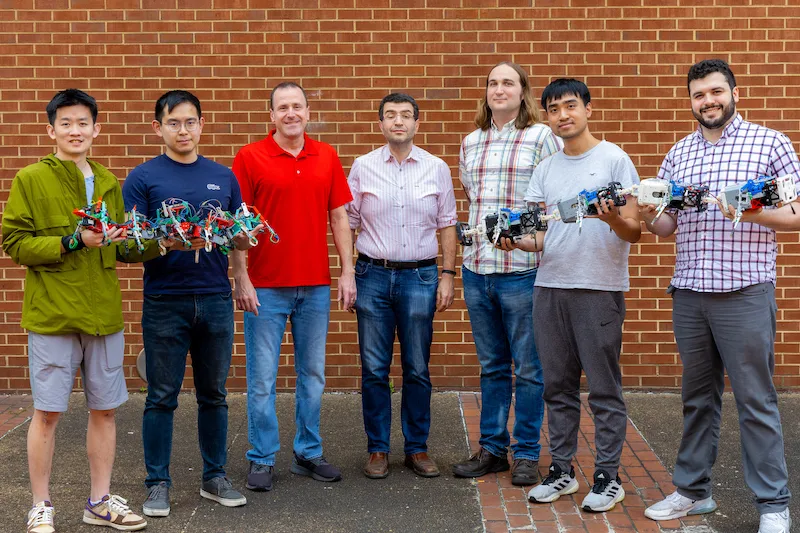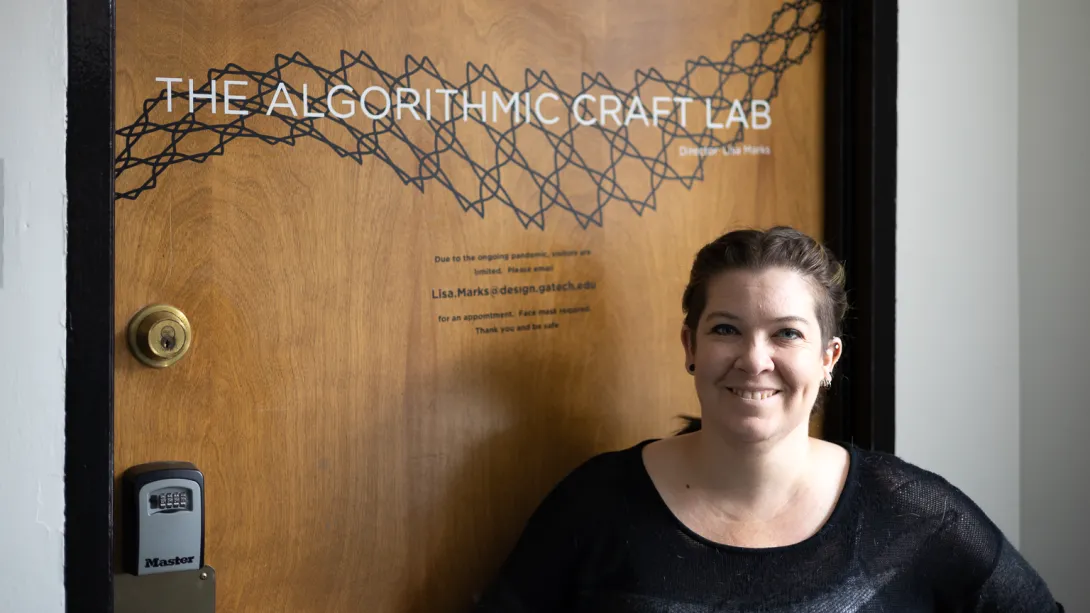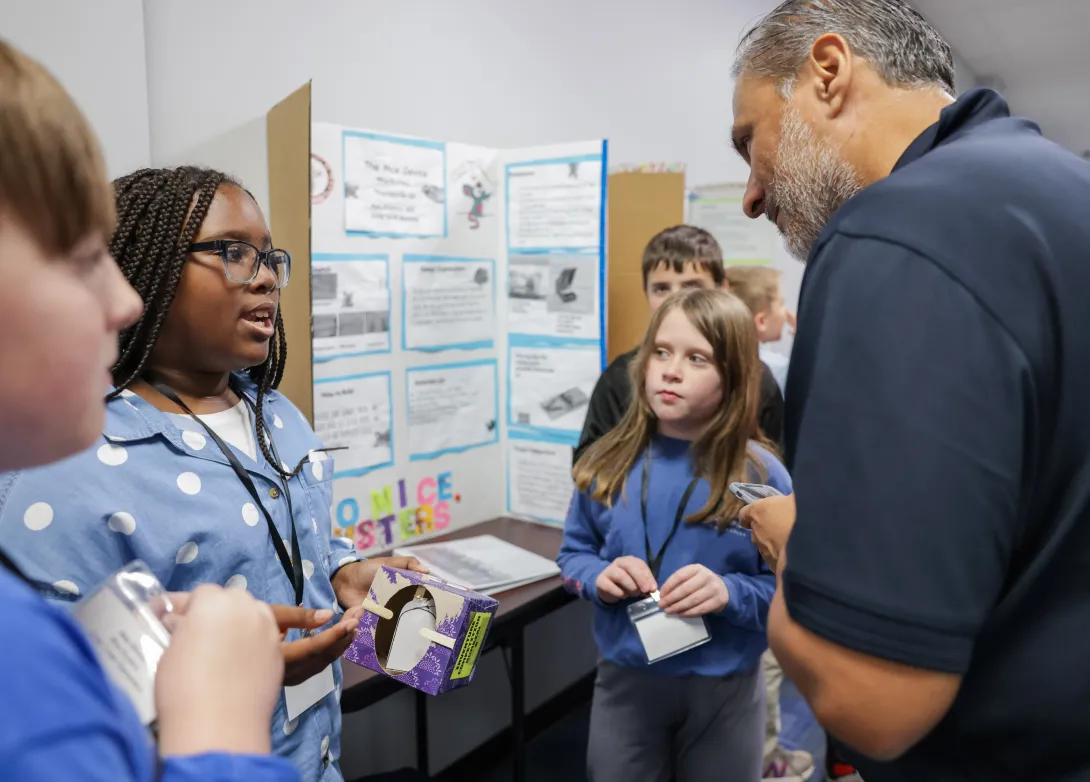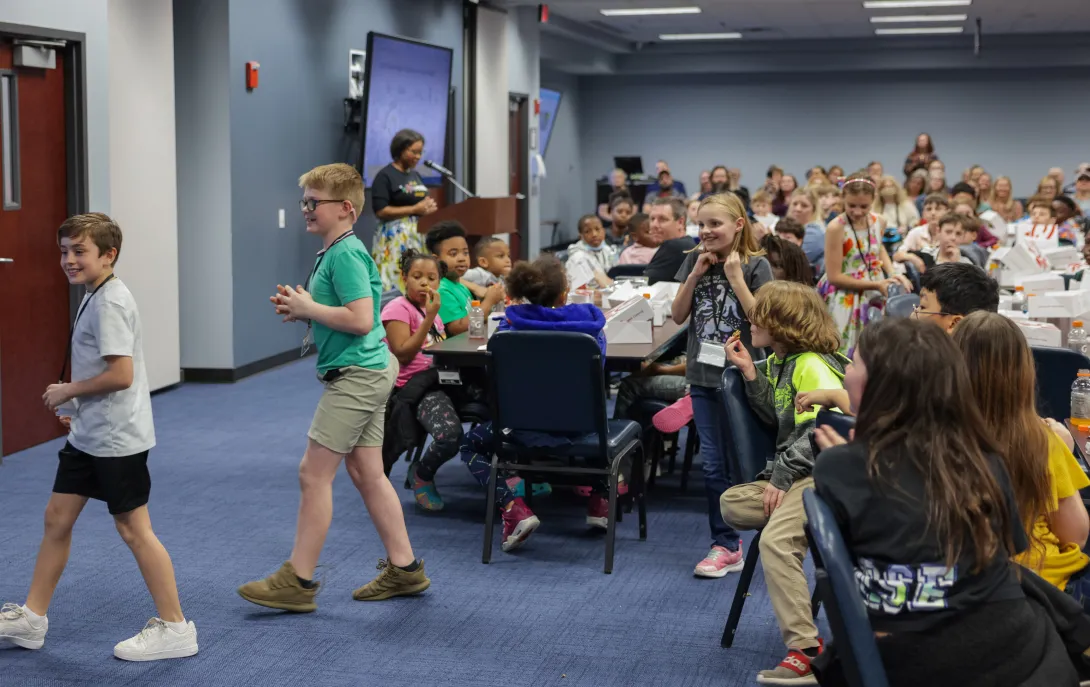Sep. 06, 2023
“A stitch in time saves nine,” goes the old saying. For a company in Georgia, that adage became very real when damage to a key piece of machinery threatened its operation. The group helping with the stitch in time was the Georgia Manufacturing Extension Partnership (GaMEP), a program of Georgia Tech's Enterprise Innovation Institute that — for more than 60 years — has been helping small- to medium-sized manufacturers in Georgia stay competitive and grow, boosting economic development across the state.
Silon US, a Peachtree City manufacturer that designs and produces engineered compounds used to create a wide range of products — from automotive applications to building materials, such as PEX piping and wire and cable, was experiencing problems with their extrusion line during a time of increasing customer demand. Problems with the drive mechanism on that extrusion line, a piece of equipment critical to the company’s ability to produce, threatened to shut them down. With replacement parts several weeks away, was it safe to continue operating? At what throughput rates? How much collateral damage might be incurred if they continued to operate?
That’s when Silon managers turned to GaMEP for help.
After working through ideas with GaMEP’s manufacturing experts, the team installed wireless condition monitoring sensors that provide continuous, real-time insights on their manufacturing assets’ health. With the sensors, Silon was able to find a sweet spot that not only allowed them to continue operating but also kept them from overexerting the equipment, preventing further damage.
The solution to that problem has now become a routine part of Silon’s process, as company technicians continue to use this sensor technology for early detection of any deviations or anomalies in the machinery’s health, allowing the company’s maintenance team to proactively respond by adjusting scheduled maintenance to avoid costly downtime.
GaMEP’s Sean Madhavaraman says, “Silon is more productive than ever and on track for growth. The strong results in this challenge are a great example of the decades-long focus of GaMEP to educate and train managers and employees in best practices, to develop and implement the latest technology, and to work together with businesses to find solutions.”
Daniel Raubenheimer and Matt Gammon, Silon’s general managers, also lauded GaMEP, saying, “GaMEP’s extensive experience within the manufacturing realm has been a great benefit to our company. The wireless condition monitoring sensors allow us to predict future breakdowns and mitigate a potential catastrophe — allowing us to operate in a safe manner, while saving money, time, and effort.”
News Contact
Blair Meeks
Institute Communications
Aug. 23, 2023
CREATE-X’s Startup Launch will introduce its 10th cohort of talented startup founders on Demo Day, Aug. 31, 5 – 7p.m., in the Exhibition Hall. Last year, the event drew more than 1,500 people, including business and community leaders, to view new products from a wide range of industries. All of the startups are developed through the creative work of Georgia Tech’s faculty, alumni, and students. With these products, CREATE-X founders aim to address global problems head-on with the latest technology and ingenuity.
At the event, attendees will be able to explore the products of over 100 newly minted startups, from consumer apps to deep tech, and engage with more than 250 founders about their entrepreneurial journeys. In 2021, CREATE-X startups were at the frontier of the current AI revolution, integrating OpenAI's GPT-3 well ahead of mainstream adoption.
CREATE-X began in 2014 as a Georgia Tech initiative to instill entrepreneurial confidence in students launching real startups. Their signature program is the 12-week Startup Launch accelerator, in which students and alumni intern for their own companies. Participants attend sessions, team socials, and pitch practices and receive coaching and mentorship from experienced entrepreneurs and notable Tech alumni. Demo Day is the finale of the program, a vibrant exhibition that is free and open to the public.
The inaugural cohort had eight teams. Several companies among the first six cohorts are valued above $100 million, and one company is valued at $1.3 billion. The program has worked with nearly 450 startup teams, with a total portfolio valuation of over $1.9 billion, and has produced more than 1,100 founders launching startups. In the future, CREATE-X Director Rahul Saxena said the program hopes to produce 300 startups a year.
“CREATE-X has a rich entrepreneurial ecosystem that will support students as they launch real startups. In every cohort, I remind participants that the connections they make in the program will carry after, and that they’re surrounded by talent,” Saxena said. “We want every Georgia Tech student to have this advantage when starting their business.”
He noted, “From consumer apps revolutionizing everyday life to sustainable fashion brands paving the way toward responsible consumption — there's something here for everyone. CREATE-X founders are a testament to tomorrow’s possibilities, and we invite you to see it for yourself.”
Registration is open now for Demo Day 2023. For more information, visit the CREATE-X website.
News Contact
Breanna Durham
Marketing Strategist
Jul. 23, 2023
Graduate students, under the guidance of SCL affiliated faculty member Jianjun Shi, have recently received well-deserved recognition for their accomplishments. The students' research interests revolve around the use of machine learning and data analytics in relation to advanced manufacturing.
Michael Biehler (advisor: Professor Jianjun Shi)
- Mary G. and Joseph Natrella Scholarship, American Statistical Association (ASA) (2023)
- Best Student Paper Award (Winner) Quality Control and Reliability Engineering (QCRE) Division, IISE (2023)
- For the paper: M. Biehler, D. Lin , J. Shi (2023): “DETONATE: Nonlinear Dynamic Evolution Modeling of Time-dependent 3-dimensional Point Cloud Profiles” IISE Transactions
- Best Student Paper Award (Finalist) Data Analytics and Information Systems (DAIS) Division, IISE (2023)
- For the paper: M. Biehler, A. Kulkarni, J. Li, J. Shi (2023+): “MULTI-MODAL: MULTI-fidelity, multi-modality 3D shape modeler:” submitted to IEEE Transactions on Automation Science and Engineering
- Phillip J. and Delores A. Scott Graduate Student Health and Wellness Award, H. Milton Stewart School of Industrial and Systems Engineering, Georgia Tech (2023)
- IHE-LeaD Fellow, Burroughs Wellcome Fund, Interdisciplinary and Health and Environment Leadership Development (2022-2023)
Alina Gorbunova (advisors: Professor Jianjun Shi and Professor Kamran Paynabar)
- NSF Graduate Research Fellowship (2023)
Shancong Mou (advisor: Professor Jianjun Shi)
- Best Track Paper Award (Winner), Quality Control and Reliability Engineering (QCRE) Division, IISE (2023)
- For the paper: Mou, S., Gu, X., Cao, M., Bai, H., Huang, P., Shan, J., Shi, J.*, 2023 “RGI: Robust GAN-Inversion for Generic Pixel-wise Anomaly Detection and Mask-free Image Inpainting”, The International Conference on Learning Representations (ICLR 2023).
- John S.W. Fargher Jr. Scholarship, IISE (2023)
- Angela P. and Reed J. Baker Research Excellence Award, School of ISyE, Georgia Institute of Technology (2023)
Zihan Zhang (advisors: Professor Jianjun Shi and Professor Kamran Paynabar)
- Aerospace and Test Measurement Division Scholarship, ISA (2023)
- ISA Scholarship, ISA (2023)
- Gilbreth Memorial Scholarship, IISE (2023)
- NCORE Student Scholar, National Conference on Race and Ethnicity in Higher Education (2023)
Jul. 07, 2023
Valerie Thomas, Anderson-Interface Chair of Natural Systems and Professor in the H. Milton School of Industrial and Systems Engineering, was recently asked to speak as part of Sustainability Research + Innovation (SRI) Congress 2023. The event was hosted online and at the Panama Convention Center by the National Secretariat of Science, Technology, and Innovation of the Republic of Panama (SENACYT) and the Inter-American Institute for Global Change Research (IAI).
Sustainability Research + Innovation Congress 2023 is the world's largest gathering for the global sustainability community, and for the first time, the event took place in the Latin American and Caribbean Region. SRI unites more than 2000 global sustainability research leaders, government and civil society experts, funders and innovators to inspire action and promote a sustainability transformation. The global and annual event elevates diverse knowledge on sustainability, provides an inspiring platform to share innovative ideas, and creates an inclusive space for collaboration and action. SRI is a joint initiative of Future Earth and the Belmont Forum.
As part of the Fri Jun 30 panel session "Reducing Emissions from Logistics", Thomas discussed "Life-cycle Approaches to Assessing Emissions from Logistics." To help provide the academic perspective, she was joined by Marilyn Brown, Regents' and Brook Byers Professor of Sustainable Systems in the School of Public Policy, who spoke on "Three trends challenging U.S. and global emissions reductions from logistics." The private sector perspective was provided by Alex Rodriguez, Regional Head of Energy Transition Execution - LAM with A.P. Moller - Maersk. Rodriquez provided a broad and interesting discussion of air-water-land logistics, its impact on the environment, and possible future solutions. The session was organized by Jorge Barnett Lawton, Managing Director of the Georgia Tech Panama Logistics Innovation & Research Center, who also moderated the session from Panama City.
To learn more about the annual event and view available recordings, please visit https://sricongress.org/.
Jun. 22, 2023
Thomas Kurfess, Ph.D., P.E., was elected president of the American Society of Mechanical Engineers (ASME)--he will be the 142nd president. Kurfess is the chief manufacturing officer of the Georgia Institute of Technology, and the executive director of the Georgia Tech Manufacturing Institute. He is the HUSCO/Ramirez Distinguished Chair in Fluid Power and Motion Control and professor in the George W. Woodruff School of Mechanical Engineering.
He also serves as the chief technology officer at the National Center for Manufacturing Sciences. He served as the chief manufacturing officer and founding director for the manufacturing science division at Oak Ridge National Laboratory from 2019 to 2021. He served as the assistant director for advanced manufacturing at the Office of Science and Technology Policy in the Executive Office of the President of the United States of America in 2012 and 2013, coordinating advanced manufacturing research and development.
News Contact
Jun. 13, 2023
Shreyes N. Melkote, who holds the Morris M. Bryan, Jr. Professorship in the George W. Woodruff School of Mechanical Engineering at the Georgia Institute of Technology, won the 2023 SME Gold Medal award which recognizes outstanding service to the manufacturing engineering profession in technical communications through published literature, technical writings, or lectures.
SME is a nonprofit association committed to advancing widespread adoption of manufacturing technologies and developing North America’s talent and capabilities. He was among seven 2023 SME International Honor Award winners are recognized for their significant contributions to manufacturing in the areas of manufacturing technologies, processes, technical writing, education, research and management, and service to SME. The 2023 SME International Awards Gala was held on June 5 at the Royal Park Hotel in Rochester, Michigan.
Melkote also serves as executive director of the Novelis Innovation Hub at Georgia Tech and as associate director of the Georgia Tech Manufacturing Institute. Melkote’s research focuses on the science and technology of manufacturing processes, industrial robotics for manufacturing, and data-driven methods for cyber manufacturing.
For over six decades, SME’s International Honor Awards have identified professionals whose bodies of work have led to critical breakthroughs and advancements in manufacturing technologies, processes, and education as well as honored members for their volunteerism.
“These seven professionals are among the most accomplished thought leaders in manufacturing, and I’m proud to acknowledge they also hold membership in SME,” said Bob Willig, executive director and CEO of SME. “Though their backgrounds are varied, all share a penchant for continuous improvement where status quo just doesn’t cut it.”
Melkote has published over 280 technical papers on these topics, has one U.S. patent and has successfully transitioned technology to industry. Melkote is a recipient of the SME Outstanding Young Manufacturing Engineer Award, the ASME Blackall Machine Tool and Gage Award and several best paper awards. He served as president of SME's North American Manufacturing Research Institution (NAMRI) from 2014-15, and as ASME Swanson fellow and assistant director for Technology at the Advanced Manufacturing National Program Office at NIST from 2015-16. Melkote is a fellow of SME, ASME and CIRP and has been a SME member since 1994.
SME 2023 International Honor Award Recipients:
- SME Gold Medal — Shreyes N. Melkote, Ph.D., FSME, Morris M. Bryan, Jr. Professor of Mechanical Engineering, Georgia Institute of Technology, Atlanta
- Eli Whitney Productivity Award — Lonnie Love, Ph.D., FSME, Fellow, National Security Programs, Sandia National Laboratories, Albuquerque, New Mexico
- Joseph A. Siegel Service Award — Sandra Bouckley, FSME, P.Eng., Executive Director & CEO (retired), 2017 President, SME, Southfield, Michigan
- Donald C. Burnham Manufacturing Management Award — Vaughn M. Hall Jr., International Vice President and General Manager, Corning Precision Materials, Corning Inc., Asan, South Korea
- SME Frederick W. Taylor Research Medal — Shaochen Chen, Ph.D., Chair and Zable Endowed Chair Professor, NanoEngineering Department, University of California, San Diego, San Diego
- SME Albert M. Sargent Progress Award – Subir Chowdhury, FSME, Chairman and CEO, ASI Consulting Group, Bingham Farms, Michigan
- SME Education Award — Laine Mears, Ph.D., FSME, CMfgE, PE, BMW SmartState Endowed Chair of Automotive Manufacturing, University Centennial Professor and Department Chair, Automotive Engineering Department, Clemson University, Clemson, South Carolina
News Contact
May. 10, 2023
Chuck Zhang, GTMI faculty member and the Harold E. Smalley Professor in the H. Milton Stewart School of Industrial and Systems Engineering, is one of five faculty members will help grow the College of Engineering’s work in high-impact cyber-physical systems security (CPSS) as new Cybersecurity Fellows.
Fellows represent expertise in a variety of areas of CPSS, which addresses risks where cyber and physical worlds intersect. That includes the Internet of Things (IoT), industrial systems, smart grids, medical devices, autonomous vehicles, robotics, and more.
“As devices, systems, and the world continue to become more connected, cyber-related threats that were traditionally limited to the digital domain have made their way to physical systems,” said Raheem Beyah, dean of the College, Southern Company Chair, and a cybersecurity expert. “The College of Engineering has world-renowned cybersecurity and artificial intelligence researchers. This new cohort will continue to expand the College’s breadth of expertise and leadership in CPSS.”
The three-year fellowship was made possible by a gift from Kyle Seymour, a 1982 mechanical engineering graduate who retired as president and CEO of S&C Electric Company in 2020. Seymour wanted to help increase cybersecurity-related research and instruction within the College.
School chairs nominated potential fellows, who were evaluated and selected by a committee of senior cybersecurity researchers and College leaders.
Five faculty members will help grow the College of Engineering’s work in high-impact cyber-physical systems security (CPSS) as new Cybersecurity Fellows.
Fellows represent expertise in a variety of areas of CPSS, which addresses risks where cyber and physical worlds intersect. That includes the Internet of Things (IoT), industrial systems, smart grids, medical devices, autonomous vehicles, robotics, and more.
“As devices, systems, and the world continue to become more connected, cyber-related threats that were traditionally limited to the digital domain have made their way to physical systems,” said Raheem Beyah, dean of the College, Southern Company Chair, and a cybersecurity expert. “The College of Engineering has world-renowned cybersecurity and artificial intelligence researchers. This new cohort will continue to expand the College’s breadth of expertise and leadership in CPSS.”
The three-year fellowship was made possible by a gift from Kyle Seymour, a 1982 mechanical engineering graduate who retired as president and CEO of S&C Electric Company in 2020. Seymour wanted to help increase cybersecurity-related research and instruction within the College.
School chairs nominated potential fellows, who were evaluated and selected by a committee of senior cybersecurity researchers and College leaders.
News Contact
Walter Rich
May. 05, 2023
Centipedes are known for their wiggly walk. With tens to hundreds of legs, they can traverse any terrain without stopping.
“When you see a scurrying centipede, you're basically seeing an animal that inhabits a world that is very different than our world of movement,” said Daniel Goldman, the Dunn Family Professor in the School of Physics. “Our movement is largely dominated by inertia. If I swing my leg, I land on my foot and I move forward. But in the world of centipedes, if they stop wiggling their body parts and limbs, they basically stop moving instantly.”
Intrigued to see if the many limbs could be helpful for locomotion in this world, a team of physicists, engineers, and mathematicians at the Georgia Institute of Technology are using this style of movement to their advantage. They developed a new theory of multilegged locomotion and created many-legged robotic models, discovering the robot with redundant legs could move across uneven surfaces without any additional sensing or control technology as the theory predicted.
These robots can move over complex, bumpy terrain — and there is potential to use them for agriculture, space exploration, and even search and rescue.
The researchers presented their work in the papers, “Multilegged Matter Transport: A Framework for Locomotion on Noisy Landscapes,” in Science in May and “Self-Propulsion via Slipping: Frictional Swimming in Multilegged Locomotors,” in Proceedings of the National Academy of Sciences in March.
A Leg Up
For the Science paper, the researchers were motivated by mathematician Claude Shannon’s communication theory, which demonstrates how to reliably transmit signals over distance, to understand why a multilegged robot was so successful at locomotion. The theory of communication suggests that one way to ensure a message gets from point A to point B on a noisy line isn’t to send it as an analog signal, but to break it into discrete digital units and repeat these units with an appropriate code.
“We were inspired by this theory, and we tried to see if redundancy could be helpful in matter transportation,” said Baxi Chong, a physics postdoctoral researcher. “So, we started this project to see what would happen if we had more legs on the robot: four, six, eight legs, and even 16 legs.”
A team led by Chong, including School of Mathematics postdoctoral fellow Daniel Irvine and Professor Greg Blekherman, developed a theory that proposes that adding leg pairs to the robot increases its ability to move robustly over challenging surfaces — a concept they call spatial redundancy. This redundancy makes the robot’s legs successful on their own without the need for sensors to interpret the environment. If one leg falters, the abundance of legs keeps it moving regardless. In effect, the robot becomes a reliable system to transport itself and even a load from A to B on difficult or “noisy” landscapes. The concept is comparable to how punctuality can be guaranteed on wheeled transport if the track or rail is smooth enough but without having to engineer the environment to create this punctuality.
“With an advanced bipedal robot, many sensors are typically required to control it in real time,” Chong said. “But in applications such as search and rescue, exploring Mars, or even micro robots, there is a need to drive a robot with limited sensing. There are many reasons for such sensor-free initiative. The sensors can be expensive and fragile, or the environments can change so fast that it doesn’t allow enough sensor-controller response time.”
To test this, Juntao He, a Ph.D. student in robotics, conducted a series of experiments where he and Daniel Soto, a master’s graduate in the George W. Woodruff School of Mechanical Engineering, built terrains to mimic an inconsistent natural environment. He then tested the robot by increasing its number of legs by two each time, starting with six and eventually expanding to 16. As the leg count increased, the robot could more agilely move across the terrain, even without sensors, as the theory predicted. Eventually, they tested the robot outdoors on real terrain, where it was able to traverse in a variety of environments.
“It's truly impressive to witness the multilegged robot's proficiency in navigating both lab-based terrains and outdoor environments,” Juntao said. “While bipedal and quadrupedal robots heavily rely on sensors to traverse complex terrain, our multilegged robot utilizes leg redundancy and can accomplish similar tasks with open-loop control.”
Next Steps
The researchers are already applying their discoveries to farming. Goldman has co-founded a company that aspires to use these robots to weed farmland where weedkillers are ineffective.
“They’re kind of like a Roomba but outside for complex ground,” Goldman said. “A Roomba works because it has wheels that function well on flat ground. Until the development of our framework, we couldn’t confidently predict locomotor reliability on bumpy, rocky, debris-ridden terrain. We now have the beginnings of such a scheme, which could be used to ensure that our robots traverse a crop field in a certain amount of time.”
The researchers also want to refine the robot. They know why the centipede robot framework is functional, but now they’re determining the optimal number of legs to achieve motion without sensing in a way that is cost-effective yet still retains the benefits.
“In this paper, we asked, ‘How do you predict the minimum number of legs to achieve such tasks?’” Chong said. “Currently we only prove that the minimum number exists, but we don't know that exact number of legs needed. Further, we need to better understand the tradeoff between energy, speed, power, and robustness in such a complex system.”
CITATION:
Baxi Chong et al., Multilegged matter transport: A framework for locomotion on noisy landscapes.Science380,509-515(2023).DOI:10.1126/science.ade4985
News Contact
Tess Malone, Senior Research Writer/Editor
May. 03, 2023
Lisa Marks is launching the ancient craft of fishing villages into space vehicle design. Her work adapting traditional textile handcraft to modern problems created a unique opportunity for collaboration cleaning up space debris.
According to NASA's Orbital Debris Program Office (OPDO), this debris jeopardizes future space projects. Large objects like rocket bodies and non-functional satellites are the source of fragmentation debris.
The OPDO website says removal of even five of the highest-risk objects per year could stabilize the low Earth orbit debris environment.
A research team with members from the Georgia Tech Research Institute, the Aerospace Systems Design Laboratory, and the Space Systems Design Laboratory has developed a concept using a net to capture and de-orbit large debris.
A mutual connection at Tech's GVU recommended that the team speak to Lisa Marks, assistant professor in the School of Industrial Design, based on her work combining traditional textile with new materials and methods.
Putting Textiles in Space Requires Creative Expertise
“There’s a lot of different projects on space debris happening all around the world,” Marks said, “and there’ve been a few concept papers talking about using a net.”
“But all the drawings of the net are basic concepts, just a square with a few hatches through it. No one has figured out what that net might be.”
Marks researches ways to combine traditional textile handcraft with algorithmic modeling. “I specialize in analyzing the shape of every stitch and how we can use that stitch differently. Can we create new patterns through coding, or make it larger and out of wood?”
“It allows me to think really creatively about how we can use different textiles.”
This innovative, exploratory approach is a natural fit to create a net for a job no has ever done. “There's a lot of technical considerations with this,” Marks said.
“It must pack incredibly small, weigh very little, and still be strong enough to capture and drag a rocket fuselage. There are considerations just for a material to exist in space. It needs to have low UV reactivity, low off gassing.”
“We need to understand every single little aspect of each of these techniques in order to do this.”
Static Nets Catch Fish; Slippery Nets Catch Rockets
Marks is working with Teflon, using the same knots used for fishing nets, but the non-traditional material means the nets work differently than fishing nets, she said. “These knots are made to be static, because you don’t want fish to get through the nets. But because Teflon is so slippery, the knots move around.”
“I think it will help the net’s strength, because the net will deform around irregular shapes before it breaks. What makes it unsuitable for fishing and annoying to work with becomes a huge benefit for what we need it to do.”
Some traditional handcraft techniques are dying out, and Marks sees projects like this as a reason preserving these techniques is important. “We don’t know what problems we’re going to have to solve in the future, and these crafts can be used in really surprising ways.”
“I would not have thought, ‘Netted filet lace, that’s how we’re going to solve a space problem!’ But if we lose this type of lace, we can’t solve space problems with it.”
Apr. 05, 2023
Georgia Institute of Technology’s Center for Education Integrating Science, Mathematics, and Computing (CEISMC) is at the center of a new statewide initiative combining artificial intelligence and manufacturing innovations with transformational workforce development and K-12 outreach. The Georgia Artificial Intelligence Manufacturing Corridor project (Georgia AIM) is supported by a record-shattering $65 million grant Georgia Tech received in September 2022 from the U.S. Department of Commerce’s Economic Development Administration.
Georgia AIM will support a total of nine inter-related projects throughout the state and is designed to increase job and wage opportunities in distressed and rural communities and among historically underrepresented and underserved people. Georgia AIM targets rural residents, women, Black, Indigenous and People of Color (BIPOC), those living with disabilities, and veterans — groups historically underrepresented in manufacturing. Through innovation, collaboration, education, and participation, Georgia AIM will provide the tools and knowledge to empower these communities to participate fully in a diverse AI manufacturing workforce.
“Many people have preconceived notions about manufacturing and may not be able to see how they could possibly connect to it," said Roxanne Moore, Woodruff School of Mechanical Engineering’s senior research engineer and director of CEISMC’s K-12 InVenture Prize program. “What they may not realize is that manufacturing is what brings new ideas to life. AI is rapidly reshaping the manufacturing industry and changing the landscape for job opportunities. The work that we are doing will position Georgia to lead the nation into the future of AI and manufacturing.”
Moore explains that through Georgia AIM, CEISMC will expand its K-12 InVenture Prize invention and entrepreneurship program to collaborate with school districts and businesses in Southwest Georgia, Southeast Georgia and Northeast Georgia. The initiative will expand on existing partnerships Georgia Tech has established with technical colleges and minority-serving institutions.
The project will reach at least 1,000 K-12 students and 100 teachers from underserved areas, with a focus on rural communities via existing programs at Georgia Tech, other nonprofits, the Technical College System of Georgia, the Southwest Georgia Regional Commission, local manufacturers, and K-12 school leaders, Moore said.
“We need to illustrate the powerful relationships between innovation, entrepreneurship, and manufacturing so that students can see how ideas come to life and how they can improve their communities,” said Moore. “It is my hope that these regional ecosystems become a role model for how educational institutions can support each other in expanding access to high-quality STEM experiences for diverse students who typically are not empowered to create their futures.”
As part of Georgia AIM, CEISMC will also expand its offerings through partnerships with the institute’s GoSTEM program to better serve Latino populations. GoSTEM is a collaborative partnership at Georgia Tech between CEISMC and Institute Diversity, Equity and Inclusion (IDEI). Its mission is to promote STEM academic achievement and college attendance among Latino and other cultural and linguistic minority K-12 students. Plans include translating existing invention and entrepreneurship curriculum into Spanish, adding lessons to the curriculum on AI and manufacturing, assisting with the development of regionally focused curricula, and expanding training and events to make them more inclusive.
“Our goal is to make invention education accessible to everyone in the state, especially those who may have been previously left out of the conversation,” said Danyelle Larkin, educational outreach manager with CEISMC. “By going into more rural areas of the state and working to develop multi-lingual curricula that is focused on the needs of the region, we hope to serve as a national model for how to accelerate the transition to automation in manufacturing while diversifying the next generation of AI leadership.
Additional Georgia AIM expansion plans for CEISMC and K-12 InVenture Prize include supporting an existing high school entrepreneurship program in Fitzgerald and working with Albany State University to host teacher workshops, support local schools, and host regional competitions with a focus on inventiveness and the entrepreneurial mindset.
"The overall goal of Georgia AIM is to establish the United States as a leader in AI manufacturing while making sure that these systems complement rather than replace existing workers,” Larkin said. “The work that we are doing in CEISMC plays an integral role in Georgia AIM with our specific expertise in weaving invention education and entrepreneurship into K-12 classrooms and connecting with diverse communities. This huge grant gives us a chance to amplify our work and bring even more people into the AI conversation. It’s about building a better, more equitable future for the people of Georgia.”
—Randy Trammell, CEISMC Communications
Pagination
- Previous page
- 10 Page 10
- Next page
